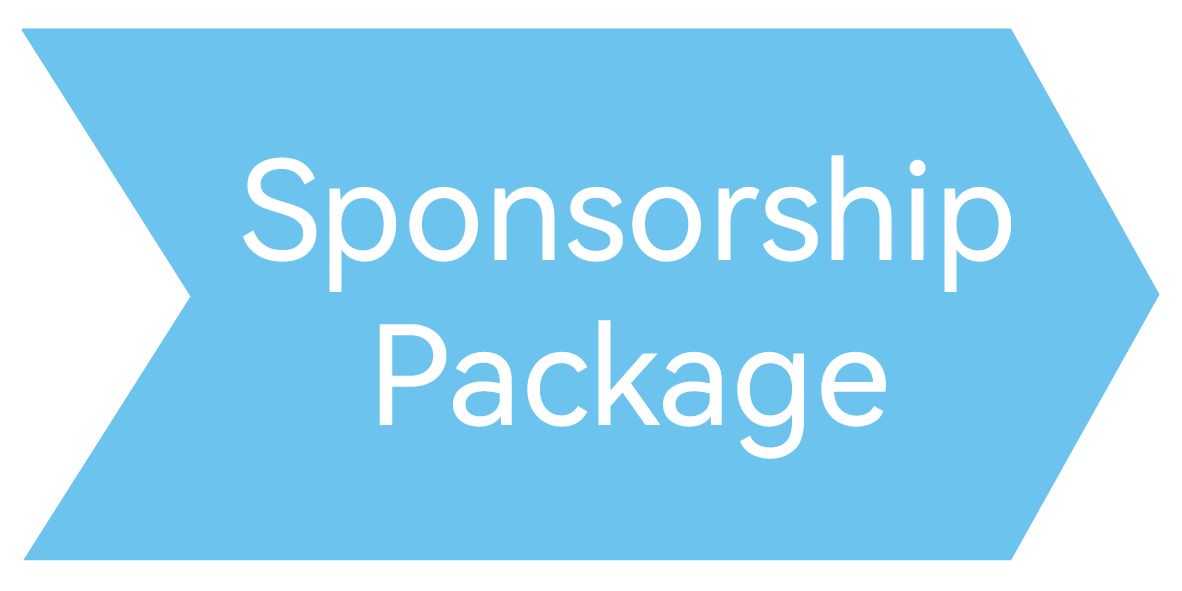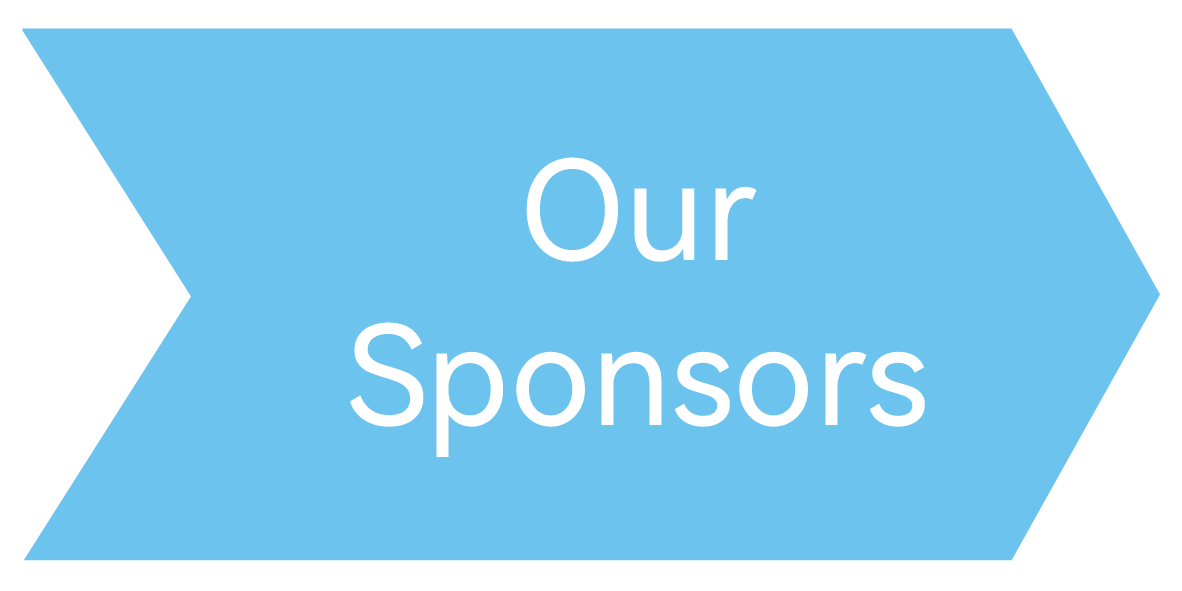The CIRS Global Chemical Regulation Conference 2024 brought together industry leaders for a dynamic day of knowledge-sharing and networking.
Held on October 17, in London, the event featured nine in-depth presentations and two engaging panel discussions, offering invaluable insights into the latest global chemical regulations, biocides, and sustainable supply chain practices. With experts across the field, the event delivered a comprehensive update on key trends shaping the future of chemical compliance.
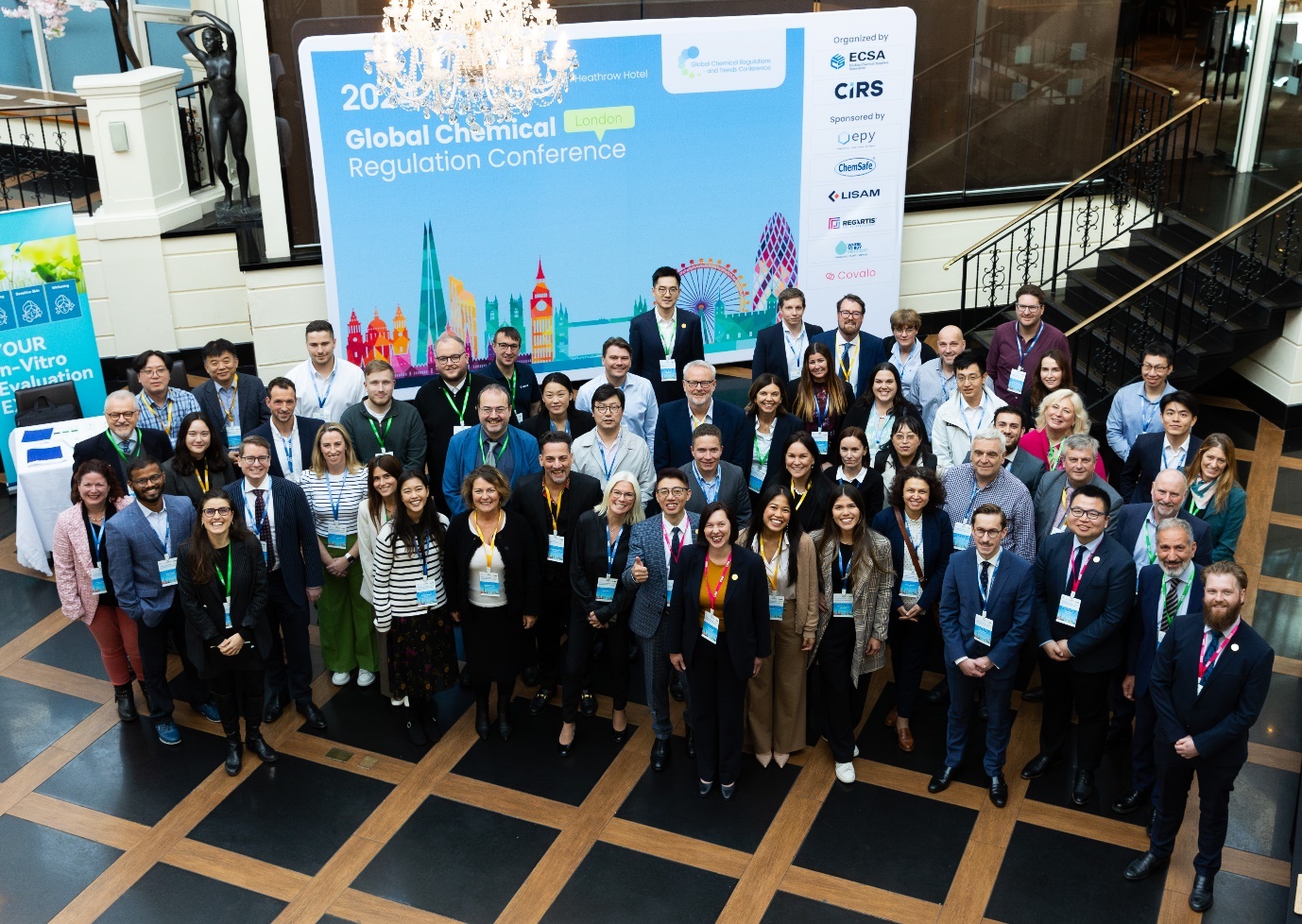

Jonathan Mitchell, chief operating officer of London Export Corporation (LEC) and senior executive director of the 48 Group Club opened the event by highlighting the 48 Group’s history with China as the first “ice breakers” doing business with China when it began to open up to the west.
He urged the delegates to view this as another key opportunity to foster relationships with China, especially for the chemical industry. He stressed that recent decisions by some companies to decouple from China have often backfired. Despite current challenges, he predicted the next five years will be an exciting time for innovation in China, emphasizing the immense opportunities on the horizon for businesses in this space.

Marko Sušnik, senior advisor at the Austrian Federal Economic Chamber (WKO) provided an in-depth update on EU chemicals policy, with a strong focus on REACH restrictions and the essential use concept (EUC). Marko highlighted the complex timeline for “universal” PFAS restrictions and noted that authorities will not give you a response on timelines but it is unlikely to come into effect in 2025.
He also explored upcoming restrictions on Chromium VI compounds, siloxanes D4, D5, and D6, and F-gases, including their phased reductions. He delved into the EU’s EUC and most hazardous chemicals (MHCs). He provided a very informative graphic with an overview of hazard classes subject to regulatory action according to the chemicals strategy for sustainability.
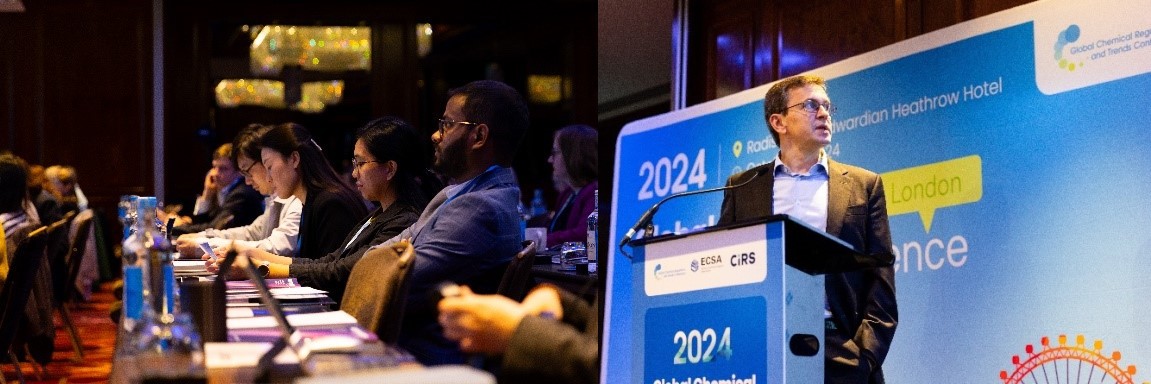
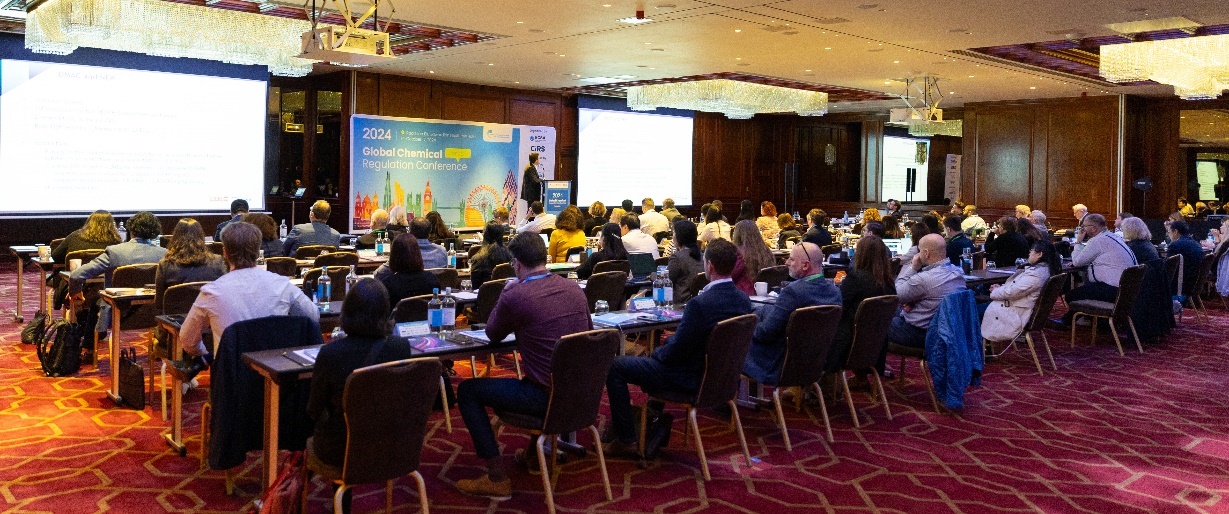
Giuliana Tacchini, regulatory director at kdc/one Home Care discussed the complexities of navigating regulatory compliance across diverse markets, drawing on her experiences at kdc/one. She highlighted the challenges of managing different countries’ regulatory frameworks, constant updates, and evolving standards. Translating legal documents accurately and collaborating with local consultants were crucial points. She also noted the financial and workforce strain of maintaining compliance and the importance of supplier adherence, particularly in global supply chains. Giuliana concluded with advice on mitigating risks and staying ahead of compliance across various regions.
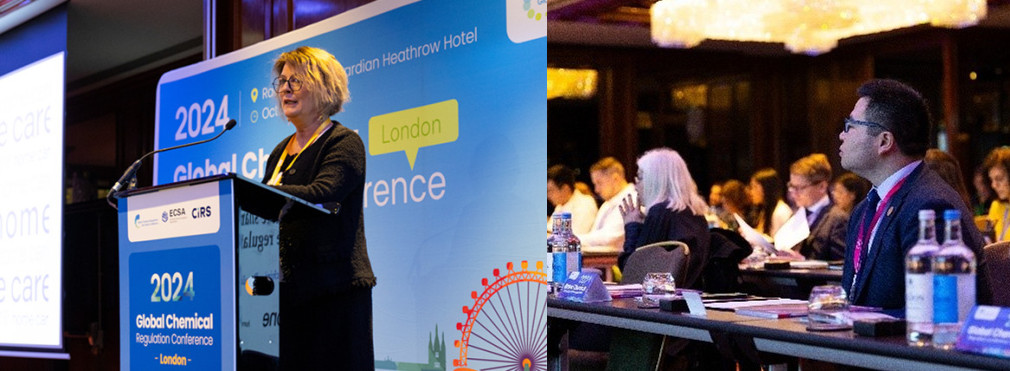
After a short coffee break and an opportunity for networking, Alastair Gardner, trade specialist at the Department for Business and Trade (DBT), UK, provided a detailed overview of export and trade opportunities for UK companies, with a focus on the chemicals industry. He outlined the role of the DBT in helping businesses overcome export barriers through their services such as free and impartial advice, webinars, and access to trade shows. He also highlighted DBT’s efforts to assess new international markets and support UK companies in expanding their global footprint by offering access to funding and research resources.
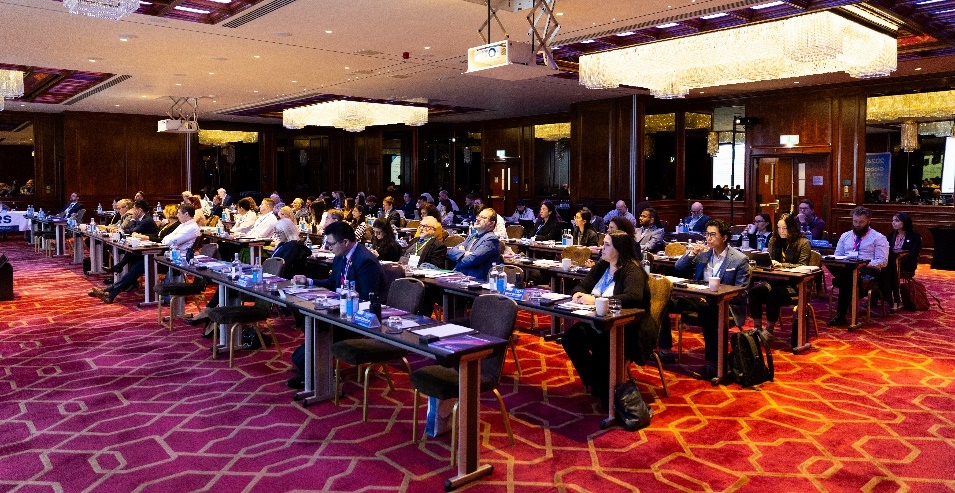
Greta Waissi, vice president, head of regulatory affairs at NordShield, and chair of the Finnish Society of Toxicology (FST), emphasized the intricacies of global biocidal regulations, starting with an overview of biocides' uses worldwide. She compared active substance approvals in the EU and US, and then explored sustainable, biobased alternatives, such as green antimicrobials.
Greta stressed the need for streamlined compliance processes, particularly for low-risk substances, and discussed the time-consuming, costly nature of regulatory approvals. She also highlighted the disparities between EU and US regulations, making it challenging to develop products that meet lower-risk standards in both regions.

Barae Jomaa, PhD, ERT, principal toxicologist and international regulatory lead at Colonial Chemical focused on global animal testing requirements and alternatives. He began with the current situation in the UK, then provided an overview of the diverse global animal testing requirements in chemical regulation, exploring key geographic differences.
He delved into alternatives such as in vitro, weight of evidence (WoE), QSAR (in silico), and read-across. He shared compliance strategies concluding with two case studies demonstrating successful use of alternative data to meet regulatory requirements without additional animal testing or with no animal tests at all.
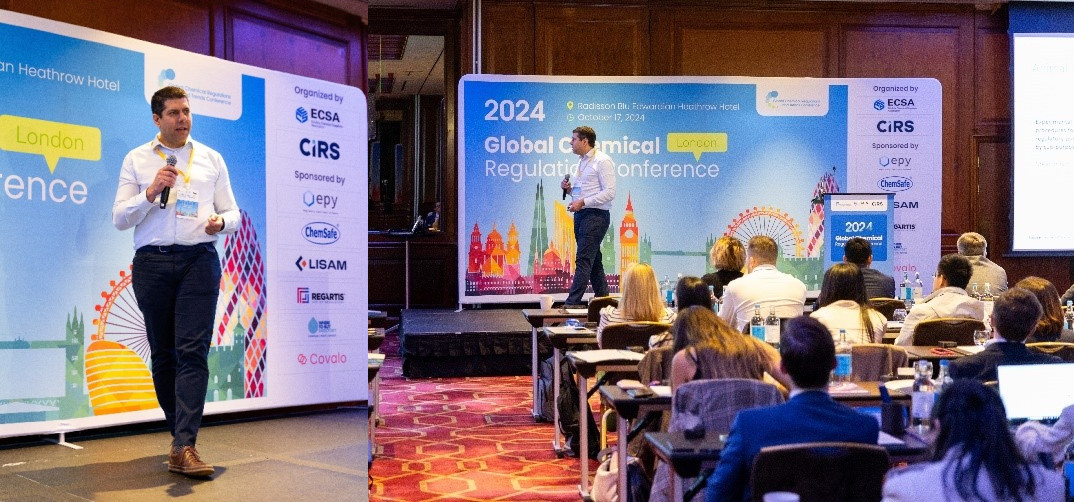
Before the break for lunch, the first panel discussion of the day focused on How the chemical industry can develop more sustainably. The diverse pan-European panel had a combined experience in the chemical industry of more than 100 years.
Key topics included the importance of collaboration along the supply chain and the shortage of skilled workers and waves of retirements. They emphasized the need for sustainable-by-design chemicals and addressed the complexities of consumer behavior – how sustainability drives messaging, but purchasing habits don’t always align. The panel concluded that better guidance is needed to prevent greenwashing and enable companies to make meaningful sustainability transitions.




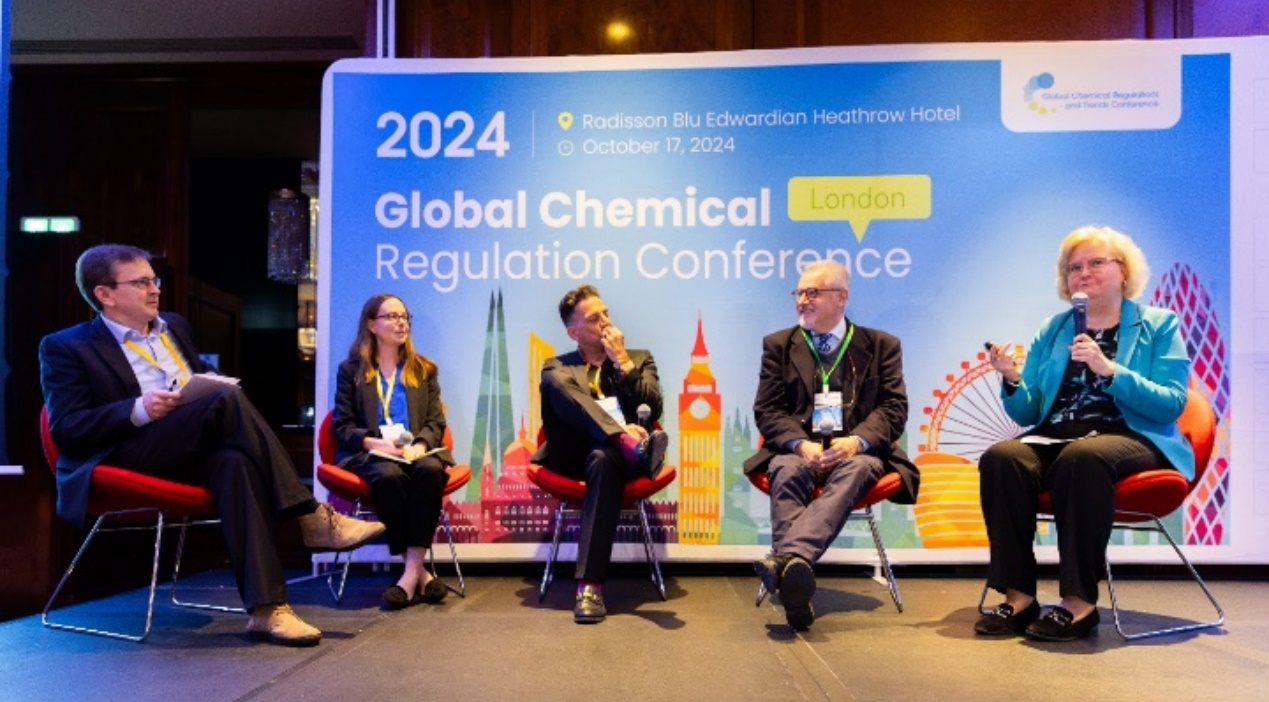
From left to right Marko Sušnik, senior advisor at the Austrian Federal Economic Chamber (WKO); Elaine McGavin, Regulatory lead, at the Chemical Business Association (CBA); Gunther Van Kerckhove, lead manager, product safety and regulatory affairs at OCSiAl Group; Antonio Conto, founder of Chemsafe; and moderated by Dorothee Arns, director general at European Association of Chemical Distributors (Fecc).
Ziannah Dehlle Pasion, regulatory affairs specialist at Telematic kicked off the post-lunch session with a global overview of the Globally Harmonized System (GHS) of classification and labelling of chemicals and its implications for international trade. She outlined the updates in the latest GHS revision. She then focused on how different countries and regions implement the components of GHS, providing examples of differences such as concentration limits and building blocks chosen. Ziannah provided regulatory lists and examples of REACH-like regulations outside Europe. And the impact the different implementations have on international trade delving into variables for SDS and labelling rules. She provided examples of these differences including highlighting certain SDS sections.
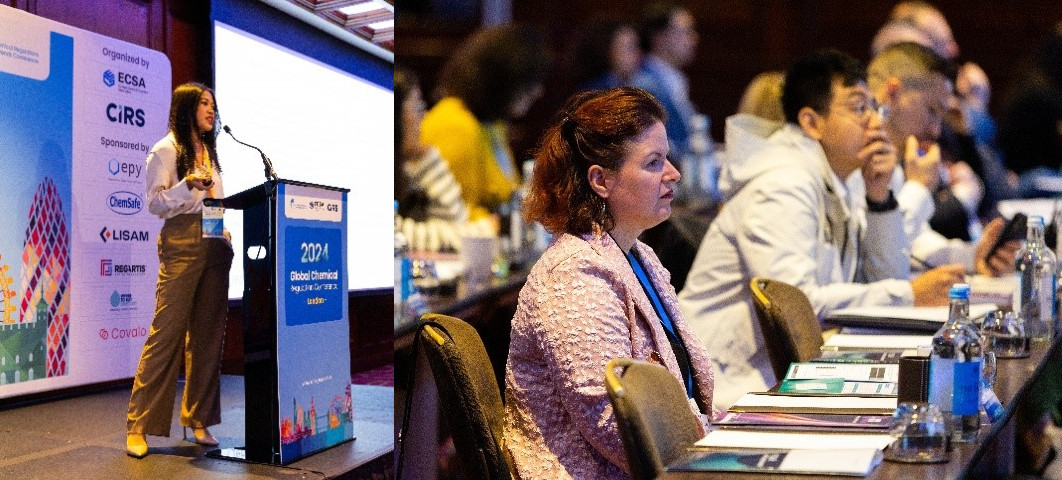
The next presentation was divided into two parts. The first focused on K-REACH amendments, presented by Doo Yong-Kyoon, deputy director of National Institute of Chemical Safety (NICS) in South Korea. This was provided in Korean and translated into English by Junho Lee, director of CIRS Korea.
He detailed recent K-REACH amendments, including new categories for toxic chemicals and changes to recycled waste regulations. He reminded the audience of the upcoming registration deadline for 100-1,000-ton substances under K-REACH.
Minji Kang, senior consultant at CIRS Group Korea followed, with a comparison of EU REACH and K-REACH. She provided data on K-REACH new chemical registration and notification applications. And then went on to focus on the upcoming deadline. Minji highlighted key differences in the regulatory process between the EU and South Korea.

Dr. Geoff Mackey, UK country manager at Plastics Europe, explored the real meaning of sustainability, ESG, and net zero, emphasizing that sustainability is about action, not just planning. He noted the growing gap between consumer interest in sustainable packaging and their actual purchasing decisions, echoing themes from the earlier panel. He highlighted the commitment to circularity by the plastics industry and concluded by stressing the importance of bridging this gap to create a real impact in the shift toward sustainable packaging.
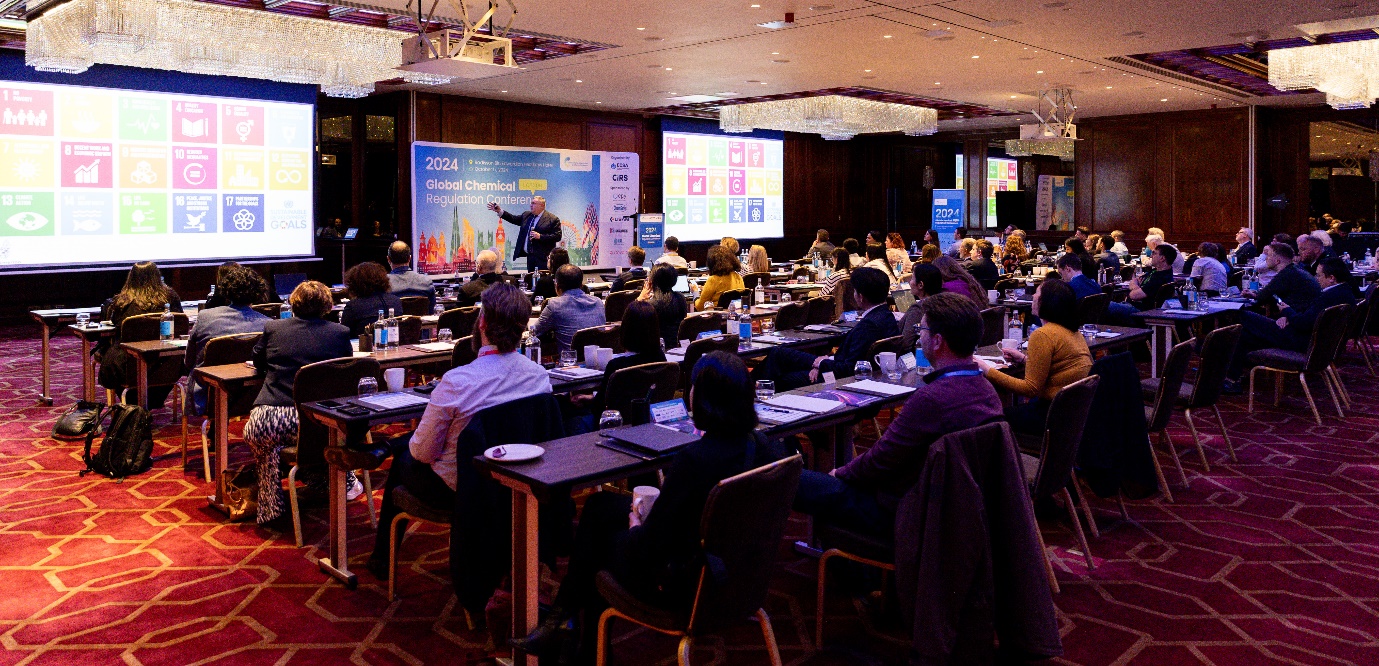
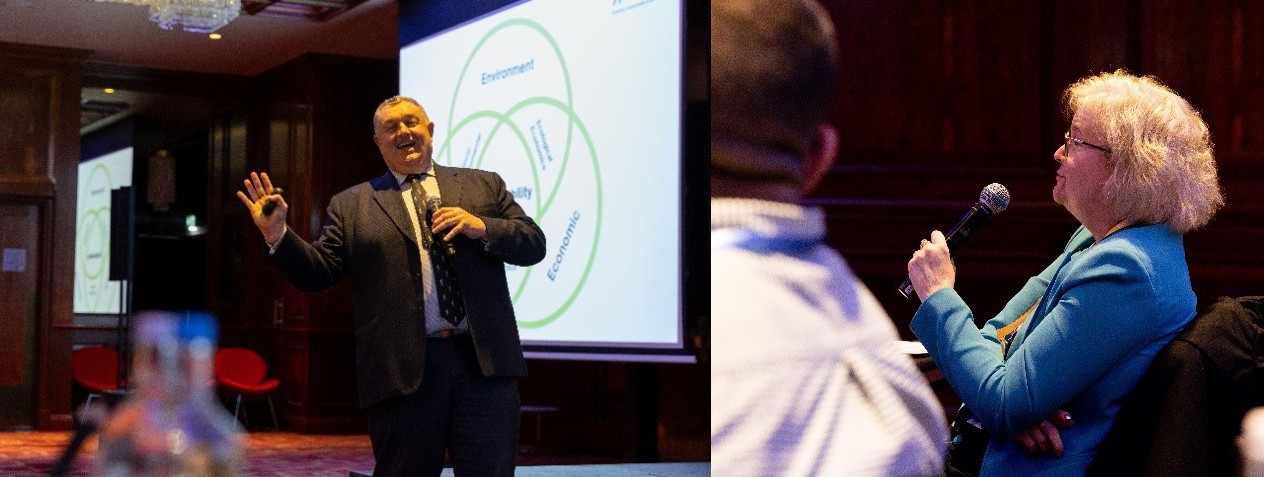
Bryan Zhou, deputy general manager of CIRS Europe, wrapped up the day’s presentations with a detailed overview of China’s chemical regulatory landscape, focusing on MEE Order 12 (China REACH). He discussed the challenges of strict confidentiality requirements, the lack of standard testing methods for polymer exclusion, and the absence of clear guidance for economic benefit analysis reports. Bryan provided insight into how companies can manage compliance in China’s evolving regulatory environment and offered practical tips for navigating these challenges.
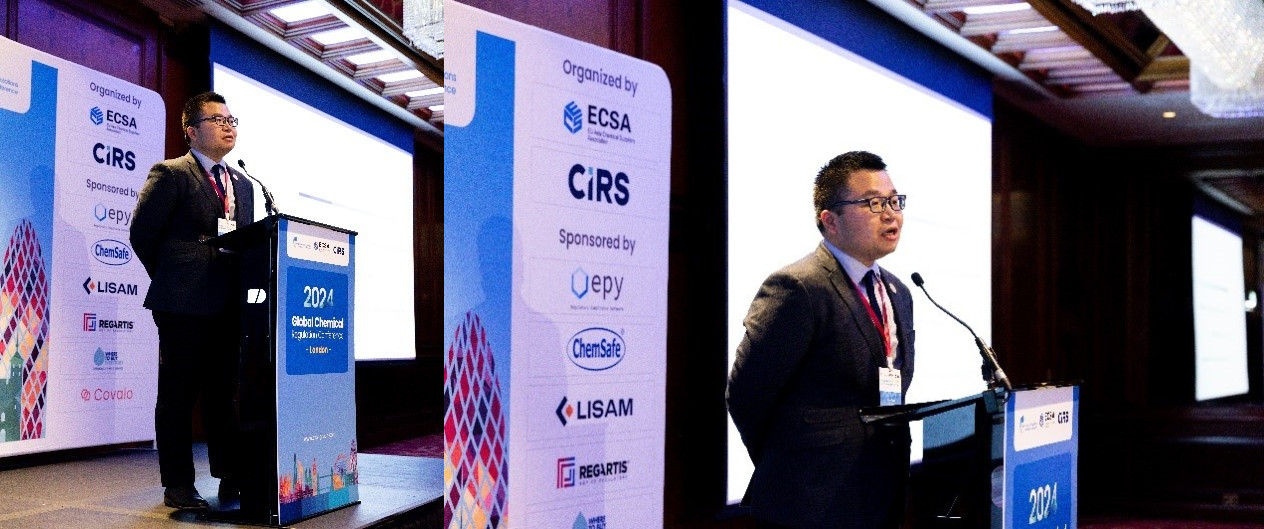
The final panel discussion tackled global supply chain challenges in the chemical industry, featuring insights from a diverse group of experts. A key focus was on the impact of geopolitical events like the Russia-Ukraine war, which drove up UK energy prices, alongside the COVID pandemic, underscoring the need for a more diversified supply chain. The discussion also emphasized that the chemical industry must lead the sustainability agenda, as chemicals are central to global supply chains. Workforce skills and the need for tech investment were also highlighted as critical areas for future growth.

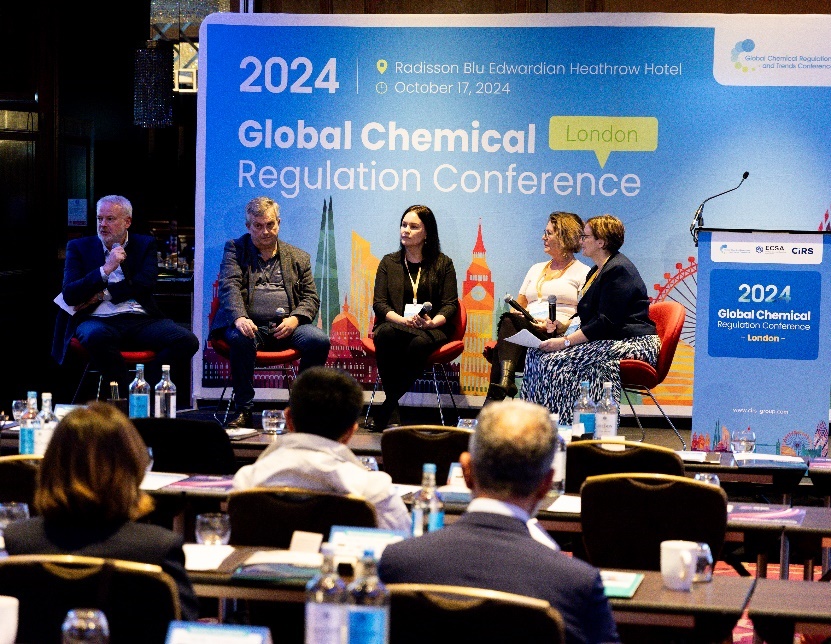

From left to right: Ian Cranshaw, head of international trade and regions at Chemical Industries Association (CIA); Alastair Gardner, trade specialist (chemicals) at the Department for Business and Trade (DBT); Greta Waissi, vice president at NordShield, chair of the Finnish Society of Toxicology (FST); Giuliana Tacchini, regulatory director at KDC-one Home Care; and moderated by Gill Pagliuca, regulatory products knowledge leader at Ricardo Plc.
Feedback from delegates has been overwhelmingly positive, with many noting the depth of expertise on display and the relevance of the topics covered. Attendees appreciated the interactive nature of the sessions, which allowed them to connect with speakers and fellow participants, fostering valuable networking opportunities that will likely extend beyond the conference.
With this success, we are excited to announce that planning for next year’s event is already underway. We are confident that the next conference will build on the momentum created this year, bringing even more value to participants by addressing emerging trends and challenges within the regulatory landscape.
We would like to extend our heartfelt thanks to our amazing supporters and sponsors, without whom this event would not have been possible. Thank you to Chemsafe, Covalo, Lisam, REGARTIS, Telematic, Where to Buy Chemicals Directory. You can find out more about our sponsors here.
We are incredibly grateful for the support of our attendees and speakers for making this year such a success.
To register your interest in attending or sponsoring next year’s event please email conference@cirs-group.com or keep an eye on our website and social media for updates.


